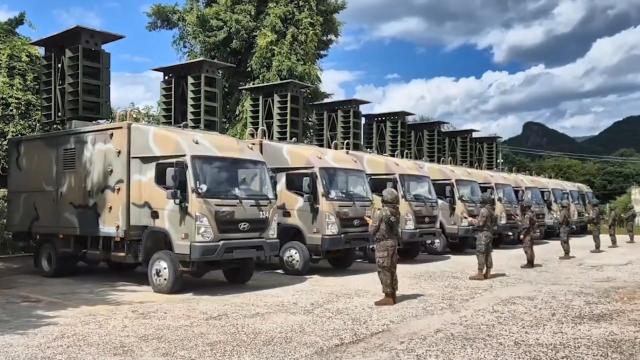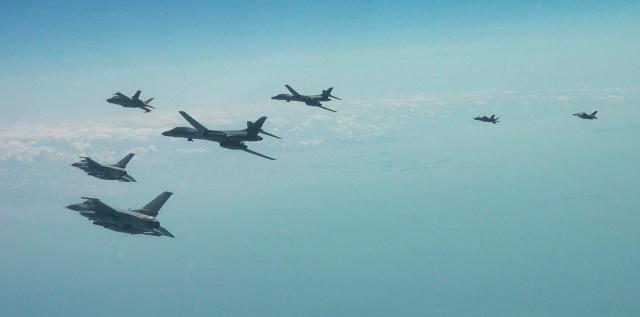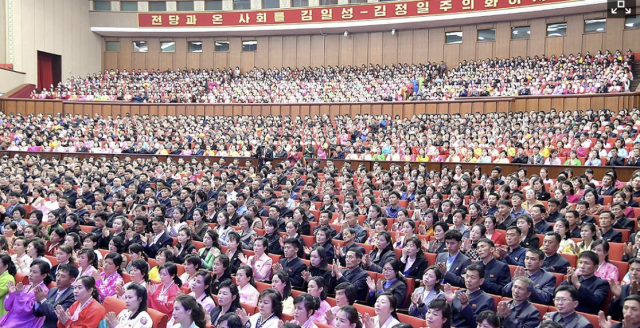
SEOUL, June 10 (AJU PRESS) - Inter-Korean tensions are escalating as South Korea resumed propaganda broadcasts near the border with North Korea on Sunday in a tit-for-tat action after North Korea re-launched balloons carrying trash and garbage southwards.
As Pyongyang has shown histrionics toward the propaganda broadcasts, some have warned of potential local skirmishes or clashes in the demilitarized zone (DMZ).
According to the Joint Chiefs of Staff (JCS), the broadcasts went live at 5:00 p.m. (0800 GMT), starting with South Korea's national anthem followed by an opening comment from an announcer, "Hello, fellow North Koreans. We will now begin broadcasting the voice of freedom, delivering truth and hope."
The broadcasts, which lasted for about two hours, included South Korean news and weather forecasts for the North Korean region. They also featured reports highlighting South Korea's economic development through news coverage like Samsung Electronics' global shipment of mobile phones. Several hit songs by K-pop sensation BTS and duo-turned solo female singer Bolbbalgan4 were also played over the DMZ through loudspeakers.
Previously, around two dozen high-powered stationary loudspeakers and 16 mobile units have operated along the DMZ since 1963. The DMZ, a four-kilometer-wide strip of land, has divided the Korean Peninsula since an armistice ended the Korean War in 1953. These loudspeakers can send sounds up to 30 kilometers (18 miles) away.
Loudspeaker broadcasts were halted amid a thaw in inter-Korean relations in 2004, but they have resumed temporarily during periods of heightened tensions, such as the sinking of the Cheonan corvette in March 2010, a landmine explosion in the DMZ area in August 2015, and North Korea's fourth nuclear test in January 2016.
Seoul decided to strongly response to the North's latest provocations by resuming the propaganda broadcasts for the first time in eight years after Pyongyang repetitively sent balloons carrying garbage and feces southwards recently.
Last week, North Korea's state news agency claimed that Pyongyang wanted to make South Koreans feel "how unpleasant and effort-intensive cleaning up paper scattered by propaganda balloons can be," referring to balloons sent north by South Korean human rights activists.
The impact of the propaganda broadcast program as a psychological warfare tool has been proved by Pyongyang's extreme sensitivity to the broadcasts, fearing they would undermine the morale of soldiers and people living near the DMZ.
North Korea reacted quickly by releasing a statement through the Korean Central News Agency soon after Seoul began broadcasting propaganda materials. North Korea "scattered 7.5 tons of wastepaper with more than 1,400 balloons over the border..... from the night of June 8 to the dawn of June 9," said North Korean leader Kim Jong-un's sister, Yo-jong.
Emphasizing that the balloons "only scattered empty wastepaper" and that Pyongyang had originally intended to stop sending balloons, Kim denounced that the operation of the South's loudspeaker broadcasting as "despicable and childish behavior."
The North's re-launch of such ballons attacks was promoted by private activists here, mostly North Korean defectors, who floated leaflets toward North Korea.
"I sternly warn Seoul to stop at once the dangerous act of bringing further confrontation crisis and discipline itself," Kim warned, adding that South Korea will "undoubtedly witness the new counteraction" from North Korea.
Copyright ⓒ Aju Press All rights reserved.





View more comments